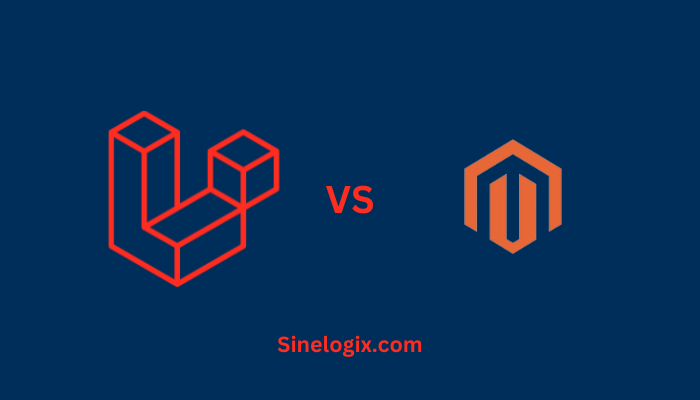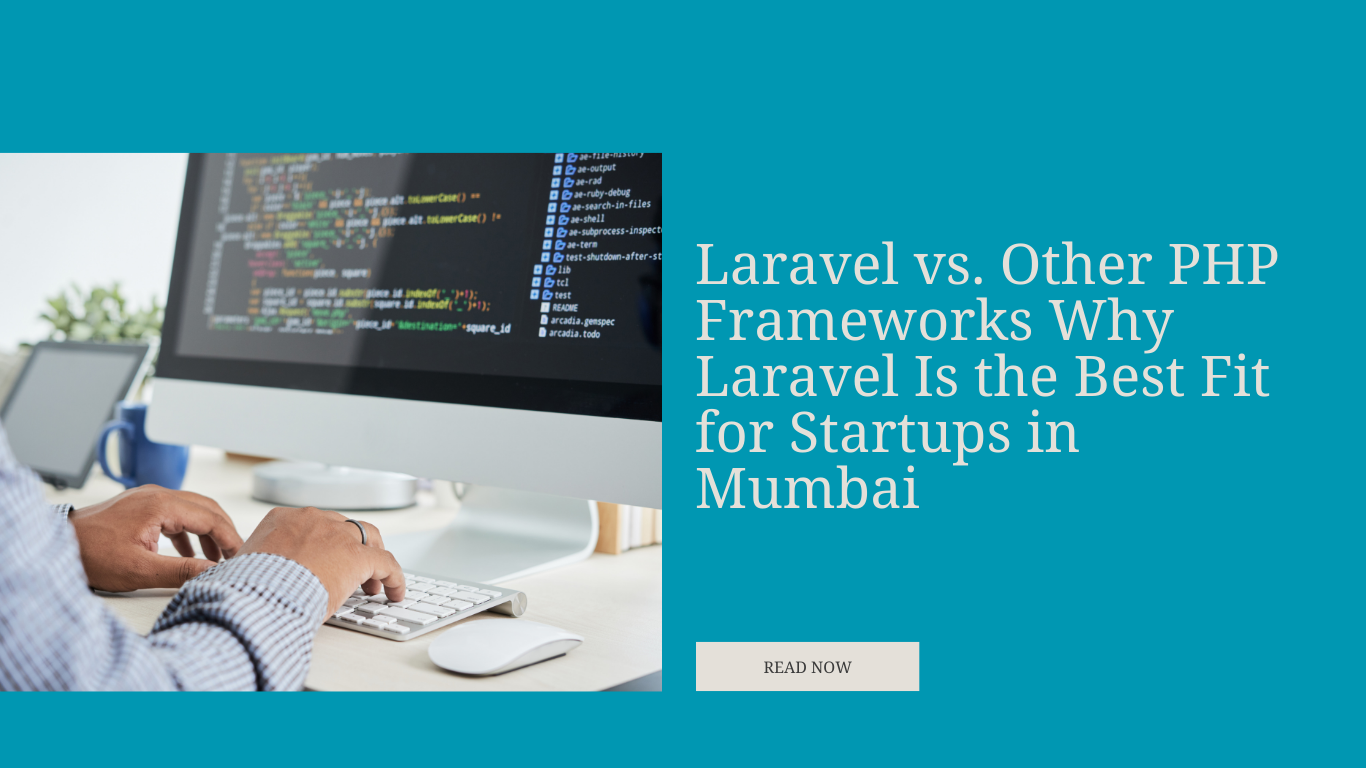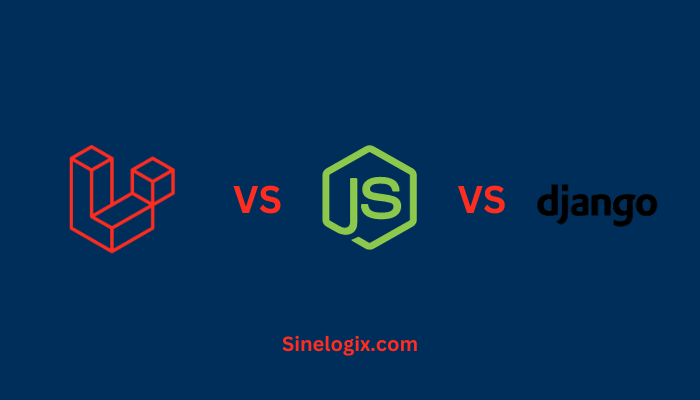Laravel and Magento, both stalwarts in the world of web development, cater to distinct niches. Laravel, a PHP framework, is renowned for its elegant syntax and rapid development capabilities. Magento, on the other hand, is a specialized e-commerce platform, designed for creating robust online stores. In this comprehensive comparison, we’ll explore the strengths, use cases, and considerations for choosing between Laravel and Magento.
Overview of Laravel and Magento
Laravel: Laravel is a PHP web application framework known for its expressive syntax, elegant design, and developer-friendly environment. It follows the Model-View-Controller (MVC) architectural pattern, providing tools for routing, templating (Blade engine), and Object-Relational Mapping (ORM) through Eloquent. Laravel’s focus on clean, maintainable code and its extensive ecosystem make it a versatile choice for various web applications.
Magento: Magento, now owned by Adobe, is an e-commerce platform designed for creating scalable and feature-rich online stores. Available in both open-source and enterprise editions, Magento offers powerful tools for product management, customer relations, and order processing. Its modular architecture and customization capabilities make it a go-to solution for businesses of varying sizes in the e-commerce domain.
Use Cases and Target Audience
Laravel: Laravel is a general-purpose framework suitable for a wide range of web applications, from content management systems to custom business solutions. It is favored for its simplicity, elegant syntax, and rapid development capabilities. Laravel is an excellent choice for startups, small to medium-sized businesses, and projects where frontend rendering and a robust MVC framework are paramount.
Magento: Magento, specialized for e-commerce, is ideal for businesses aiming to establish a strong online presence. It caters to enterprises and large-scale businesses that require a feature-rich platform with comprehensive e-commerce functionalities. Magento excels in managing product catalogs, processing transactions, and providing a seamless shopping experience. Its scalability makes it a preferred choice for businesses experiencing significant growth.
Architecture and Design Philosophy
Laravel: Laravel adheres to the MVC architectural pattern, promoting a clean separation of concerns. Its design philosophy emphasizes developer happiness, expressiveness, and the creation of elegant code. Laravel’s opinionated approach simplifies common tasks, allowing developers to focus on building features rather than dealing with low-level details.
Magento: Magento follows a modular and extensible architecture. The platform’s design philosophy revolves around flexibility and customization. It provides a robust set of core features while allowing developers to extend functionality through modules. Magento’s architecture caters to the complex requirements of e-commerce, allowing businesses to tailor the platform to their specific needs.
Learning Curve and Development Experience
Laravel: Laravel is known for its developer-friendly syntax, making it accessible for PHP developers of varying skill levels. The framework provides comprehensive documentation, guides, and tutorials, easing the learning curve. Laravel’s dedicated tools, such as the Artisan command-line interface, contribute to a streamlined development experience.
Magento: Magento has a steeper learning curve, given its specialized nature and extensive set of features. Developers working with Magento are often required to grasp the platform’s architecture and module system. While Magento offers comprehensive documentation, mastering the intricacies of the platform may take more time compared to a general-purpose framework like Laravel.
Community and Support
Laravel: Laravel boasts a large and active community, contributing to its growth and improvement. The Laravel community is known for its helpful forums, third-party packages, and regular updates. Laravel’s popularity ensures ongoing support and a wealth of resources for developers, including Laracasts for video tutorials.
Magento: Magento, being a widely adopted e-commerce platform, has a dedicated community focused on e-commerce development. While not as extensive as Laravel’s community, the Magento community actively participates in forums, events, and the Magento Marketplace. The platform’s popularity ensures access to a variety of extensions and resources.
Performance and Scalability
Laravel: Laravel offers good performance for PHP applications and is suitable for various project sizes. Its scalability is enhanced by features like caching, queuing, and optimized database queries. Laravel Horizon aids in managing scalable applications efficiently. While Laravel is performant, its strengths lie in general-purpose web development rather than specialized e-commerce scenarios.
Magento: Magento is designed with scalability in mind, making it suitable for large-scale e-commerce operations. The platform’s performance can be optimized through proper server configuration, caching strategies, and efficient code practices. Magento excels in handling the complexities of e-commerce, where large product catalogs and high transaction volumes are common.
Middleware and Request Handling
Laravel: Laravel’s middleware system provides a flexible mechanism for filtering HTTP requests. Middleware can perform tasks like authentication, logging, and modifying incoming requests. This flexibility enhances Laravel’s ability to handle various aspects of request processing, making it adaptable to diverse application requirements.
Magento: Magento’s request handling is tailored for e-commerce needs, with a focus on processing product searches, managing shopping carts, and handling checkout processes. The platform’s middleware architecture allows developers to extend and customize request handling to accommodate the specific requirements of an online store.
Database Integration and ORM
Laravel: Laravel’s Eloquent ORM simplifies database operations with an expressive syntax. It allows developers to interact with databases using object-oriented methods, making it easy to perform common tasks like querying and updating records. Laravel’s database migration system streamlines schema management.
Magento: Magento uses its own ORM system for database interactions, designed to handle the complexities of e-commerce data structures. The EAV (Entity-Attribute-Value) model in Magento allows for flexible data storage, catering to the diverse needs of online stores. While powerful, Magento’s ORM is tailored specifically for e-commerce scenarios.
Template Engine and Frontend Development
Laravel: Laravel employs the Blade templating engine, known for its simplicity and readability. Blade supports template inheritance and allows developers to create modular and reusable views. Laravel Mix, a wrapper around Webpack, simplifies asset compilation and frontend development.
Magento: Magento uses the XML-based layout system along with PHP templates for frontend development. The platform provides a robust set of tools for managing themes, layouts, and frontend assets. Magento’s frontend capabilities are tailored for creating visually appealing and feature-rich online stores.
Testing and Quality Assurance
Laravel: Laravel places a strong emphasis on testing with PHPUnit, providing a robust testing environment. Developers can conduct various types of tests, including unit tests, feature tests, and integration tests seamlessly. Laravel Dusk facilitates browser automation testing, ensuring comprehensive coverage for web applications.
Magento: Magento supports testing through PHPUnit as well, offering a testing framework for unit tests and integration tests. The platform’s testing tools enable developers to ensure the reliability and quality of e-commerce functionalities. Magento’s testing capabilities are particularly crucial for maintaining the stability of online stores.
Development Speed and Prototyping
Laravel: Laravel’s elegant syntax and built-in features contribute to rapid development. Laravel Spark, a package for SaaS application scaffolding, accelerates the creation of subscription-based web applications. The framework’s focus on developer-friendly syntax aids in quick prototyping, making it ideal for startups and projects with tight deadlines.
Magento: Magento’s development speed can be influenced by the complexity of e-commerce requirements. While the platform offers powerful tools for building online stores, the extensive feature set and customization options may lead to a longer development cycle compared to more straightforward projects.
Mobile App Development
Laravel: While primarily a backend framework, Laravel can serve as the backend for mobile applications. Laravel Nova or API resources can be used to expose backend functionality for mobile app integration. Laravel’s API-centric approach facilitates the development of robust and secure APIs.
Magento: Magento has a dedicated solution for mobile app development called Magento PWA Studio. It allows developers to build progressive web applications (PWAs) that deliver a native app-like experience. Magento’s focus on mobile responsiveness ensures that online stores built with the platform provide a seamless experience across devices.
Community Trends and Adoption
Laravel: The Laravel community is dynamic, and the framework continues to evolve with frequent updates and new features. Laravel Vapor, a serverless deployment platform, reflects the community’s commitment to embracing modern cloud-native technologies. This adaptability ensures that Laravel remains relevant in the ever-changing landscape of web development.
Magento: Magento maintains a significant presence in the e-commerce space, with a large number of online stores built on the platform. Adobe’s acquisition of Magento has brought additional resources and integration possibilities. The Magento community remains active, contributing to the platform’s development and providing extensions for enhanced functionality.
Server Resource Utilization
Laravel: As an interpreted PHP framework, Laravel may require more server resources compared to frameworks written in lower-level languages. However, the ease of use, extensive feature set, and developer-friendly environment can justify the resource overhead in many scenarios.
Magento: Magento, being a comprehensive e-commerce platform, may have higher resource requirements compared to more lightweight frameworks. Proper server configuration, caching strategies, and optimization practices are crucial for ensuring optimal performance and resource utilization in Magento-based online stores.
Ecosystem and Third-Party Integrations
Laravel: Laravel’s ecosystem is rich and diverse, with a wide array of third-party packages available through Composer. Laravel Forge simplifies server provisioning and deployment, while tools like Laravel Mix streamline asset compilation. The availability of packages and integrations enhances the development workflow and supports a variety of use cases.
Magento: Magento has a robust ecosystem with a marketplace offering extensions for various e-commerce functionalities. The Magento Marketplace provides a centralized hub for developers to share and sell their extensions. Magento’s ecosystem is tailored to the specific needs of online stores, offering solutions for payment gateways, shipping, and more.
Containerization and Microservices
Laravel: Laravel applications can be containerized using tools like Docker, allowing for seamless deployment and scalability. Laravel’s modular structure and support for microservices architectures make it suitable for building distributed systems. Laravel Horizon aids in managing scalable Laravel applications efficiently.
Magento: Magento Commerce, the enterprise edition of Magento, includes support for containerization using technologies like Docker and Kubernetes. This allows businesses to deploy and manage Magento applications in containerized environments. Containerization is particularly beneficial for scaling online stores based on Magento.
Internationalization and Localization
Laravel: Laravel provides robust support for internationalization and localization. Developers can easily manage language files, translate content, and adapt the application to different locales. Laravel’s localization capabilities contribute to building globally accessible web applications, a crucial aspect for projects targeting diverse audiences.
Magento: Magento offers comprehensive support for internationalization and localization, crucial for online stores catering to a global audience. The platform allows businesses to manage multiple stores with different languages, currencies, and tax regulations. Magento’s internationalization features contribute to creating a seamless and localized shopping experience.
User Authentication and Authorization
Laravel: Laravel simplifies user authentication and authorization through the built-in Laravel Passport and Laravel Sanctum packages. These packages provide convenient solutions for API authentication and token management. Laravel’s focus on security features ensures a robust foundation for implementing user authentication and access control.
Magento: Magento includes robust user authentication and authorization features tailored for e-commerce scenarios. It supports various authentication methods and allows businesses to implement secure customer accounts, roles, and permissions. Magento’s focus on security aligns with the stringent requirements of handling customer data in online stores.
SEO-Friendly Routing and URLs
Laravel: Laravel’s routing system allows developers to create clean, SEO-friendly URLs. The framework’s expressive routing syntax and the ability to define named routes contribute to building URLs that are both human-readable and optimized for search engines. Laravel’s approach to routing enhances the overall SEO performance of applications.
Magento: Magento includes features and settings specifically designed for SEO optimization. It allows businesses to customize URLs, meta tags, and other SEO-related elements. Magento’s SEO-friendly options contribute to improving the visibility of online stores in search engine results, a crucial factor for e-commerce success.
Related Articles:
Conclusion
In conclusion, choosing between Laravel and Magento depends on the nature of the project and its specific requirements. Laravel excels in general-purpose web development scenarios, offering a developer-friendly environment and rapid development capabilities. It is a solid choice for startups, small to medium-sized businesses, and projects where a versatile framework is essential.
On the other hand, Magento shines in the realm of e-commerce, providing a comprehensive platform for building scalable and feature-rich online stores. Its modular architecture, extensive feature set, and focus on customization make it a preferred choice for businesses aiming to establish a strong online presence.
Ultimately, the decision should align with the project’s goals, considering factors such as the target audience, development speed, scalability, and the expertise of the development team. Whether it’s the elegant simplicity of Laravel or the robust e-commerce capabilities of Magento, both frameworks contribute significantly to the diverse landscape of web development.




